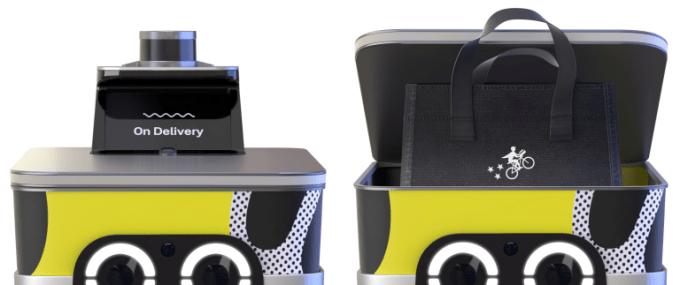Postmates has hired Apple veteran and author Ken Kocienda as a principal software engineer leading Postmates X, the team building the food delivery company’s semi-autonomous sidewalk rover, Serve.
Kocienda, author of “Creative Selection: Inside Apple’s Design Process During the Golden Age of Steve Jobs,” spent 15 years at Apple focused on human interface design, collaborating with engineers to develop the first iPhone, iPad and Apple Watch. Kocienda left Apple in 2017 to focus on his book.
Now, he’s picked Postmates as his next project, citing the team’s spirit and energy as motivation for joining.
“My goal throughout my career has not been technology for the sake of opportunity, I am interested in making product experiences that people out in the world will find useful and meaningful,” Kocienda tells TechCrunch. “It’s not about the technology or just the design, it’s about the technology and design coming together.”

Postmates unveiled Serve, their human-like delivery robot, in December. The semi-autonomous rover uses cameras and lidar to navigate sidewalks and can carry 50 pounds for up to 25 miles after one charge. To ensure safety, the team has a human pilot remotely monitoring the Serve fleets, and each rover has a “Help” button, touchscreen and video chat display for customers or passers-by to use if necessary. The company said they had planned to roll out the bots in 2019, though no pilots have been officially announced yet.
Kocienda said he is working on a variety of tasks within the Postmates X team. Just yesterday, he was focused on creating more expressions for the robot.
“We are spending a lot of time going in and refining and inventing new ways that Serve can communicate,” he said. “It’s not like we are a robotics startup. We have a business rolling, so part of what is interesting to me is that we can mine the data we have and use the intelligence we have to improve the [Serve] experience end-to-end.”
The purpose of Postmates’ incoming fleet of semi-autonomous rovers is not to eliminate the role of human drivers but to make their routes more efficient. If, say, a Postmates customer orders food from a nearby restaurant, Serve could pick up the food, potentially even get back into a car with a human driver, then get back out of the car to complete the last-mile delivery. This saves the driver from sitting in traffic and gets the customer their food much faster, ideally.
One questions how humans might respond to these rovers, however, if they are roaming the streets independently. To protect them from damage or defacement, Postmates is making them as human-like as possible, complete with a set of “eyes.”
“We want to make it socially intelligent,” Kocienda explained. “We want people, when they see Serve going down the street, to smile at it and to be happy to see it there … It’s going to have this halo effect for Postmates. It’s going to be a brand ambassador for Postmates.”
Postmates, headquartered in San Francisco, is expected to go public later this year. Most recently, the company lined up a $100 million pre-IPO financing that valued the business at $1.85 billion. Postmates is backed by Tiger Global, BlackRock, Spark Capital, Uncork Capital, Founders Fund, Slow Ventures and others.
Postmates unveils Serve, a friendlier autonomous delivery robot